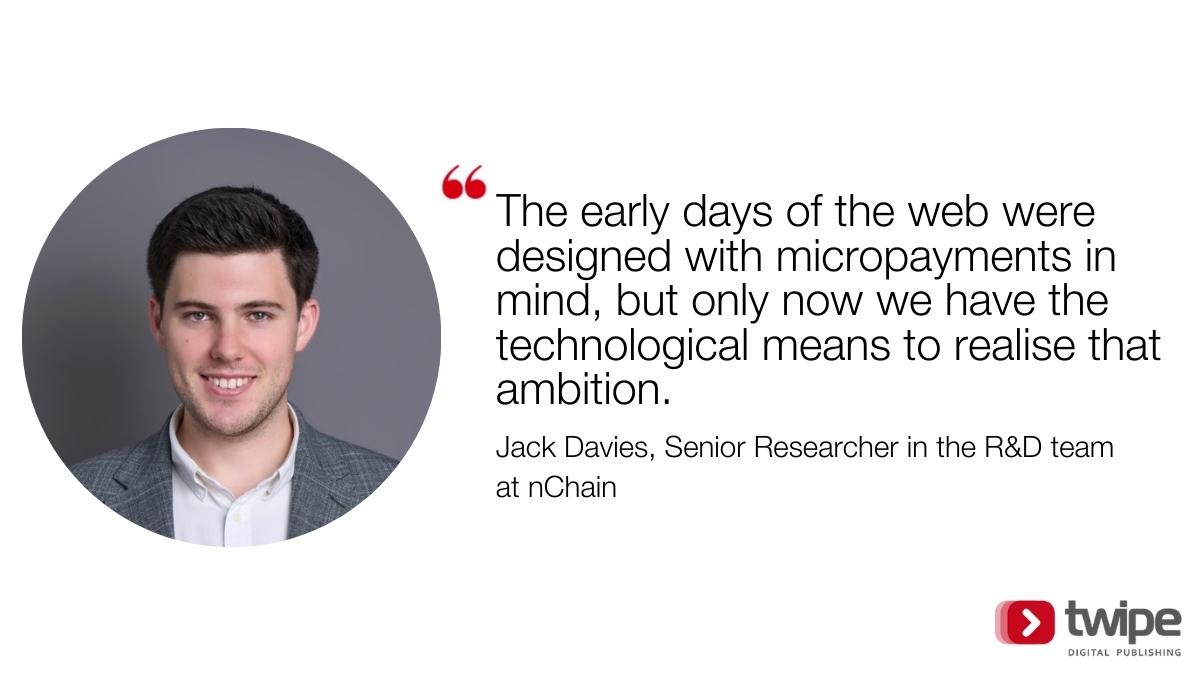Blog
Web3 offers readers a prescription for subscription

Written by Jack Davies, Senior Researcher in the R&D team at nChain
Digital content has never played a greater role in our lives than it does today. And yet, our control over how it is generated, curated, and distributed to us has never felt more opaque.
But it’s not just the surface-level presentation of online media that’s an issue. More troubling is our lack of choice in how we consume it. As users of the Internet today, we have but two options; either something is given to you for ‘free’, or you will need to stump up a subscription for it. Both have their appeals and their problems.
It’s becoming increasingly apparent that free-to-use platforms, which includes the majority of social media, replace an up-front and explicit cost with an implicit one. Rather than pay directly to use them for sharing and enjoyment of content, there are a range of hidden costs. These can range from harmless advertising to a back-door auctioning of our data and behaviours behind closed doors.
The alternative? Subscriptions take up the mantle, providing platforms a sustainable, predictable business model and users an ad-free experience. But even subscriptions have their limitations. As a consumer of digital media, I will end up paying the same cost each week, month, or year, completely independent of my actual usage of a platform. Sometimes, that might feel like a bonus! But, if you’re anything like me, more often than not seeing one of these charges periodically leave my bank account elicits a pang of regret as I reflect on how little I’ve actually used it.
But that’s merely to speak of inefficiency in subscriptions we want to take on. Many people are unwilling, or unable, to shell out for subscriptions. Even for those that are, the upper limit on the total subscription spend will also cap them to just a handful of platforms. And despite a landscape featuring more subscription-based services than ever, this consumer fatigue is growing.
Our experience of the Internet is now almost entirely dominated by this dichotomy between free and subscription platforms. In many ways, this is not the end of the world – it’s a far better experience than we had 20 years ago. But it is far from perfect, and in many ways, it does not fulfil the grander vision of Internet pioneers back then.
Is there an answer? I believe so. With the advent of blockchain and the emergence of Web3 technologies, a credible alternative to both existing models is now possible: micropayments.
The core idea is strikingly simple. Rather than paying a fixed, recurring sum for using these platforms, we can instead pay for exactly what we use. Think pay-as-you go mobile phone plans or energy meters. It’s somehow intuitive to pay for precisely what we use in these contexts – no more, no less – so why shouldn’t we have a similar option for streaming a movie?
In fact, digital media is uniquely positioned to benefit from this. Where energy and mobile messaging are fungible – as consumers we are happy to pay for any electricity – online media has the additional dimension of subjectivity. Perhaps I don’t like the movie I paid for and would like to stop half-way through. If I had already paid my monthly charge, or even bought the whole thing up-front, the money is already gone. But suppose I paid for each second of the movie using a micropayment instead. Now I am no longer committed by sunk cost to finishing it. I can simply move on to the next option. In scenarios like these, the platform may lose nothing at all, while the end user benefits immensely.
This idealised new form of payment may seem fanciful – it’s not something we can readily access or have ever had the chance to experience before. But this is precisely the prospect of Web3, and its underlying technologies, that make it possible. The early days of the web were designed with micropayments in mind, but only now we have the technological means to realise that ambition. And everybody involved in digital media stands to benefit.
Hear more from Jack at the Digital Growth Summit at The Brewery in London 19th October. Buy your ticket here.
Other Blog Posts

Stay on top of the game
Subscribe to Twipe’s weekly newsletter to receive industry insights, case studies, and event invitations.
"(Required)" indicates required fields



